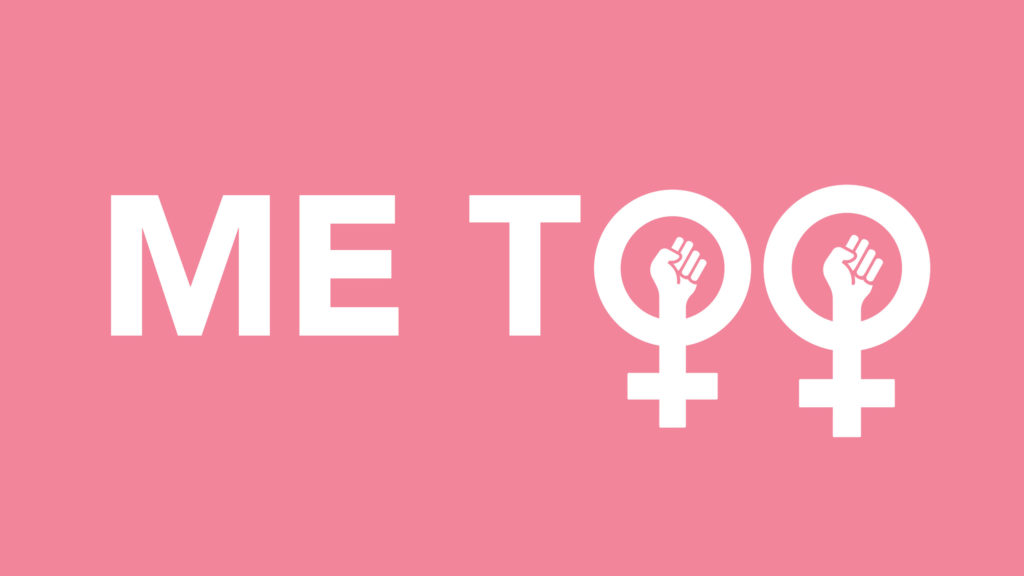
Me too!
by Maeve Carroll
Editor update: This article was selected as runner up in our 2018 Blog Prize competition. Well done Maeve.
The ‘Me Too’ campaign has been one of the most publicised global protests in the last year. Women were empowered, and the taboo subject of sexual assault was vocalised in a way that it had never been before. For the first time in a long time people were discussing the oppression and abuse of power that occurs within the entertainment industry. What started off as a vocalisation of a localised issue within Hollywood, rapidly became a worldwide phenomenon gathering support from both women and men, highlighting the ongoing injustice that occurs daily, not solely within show business, but in all walks of life. It touched a nerve. Amongst millions of women a powerful energy was harnessed. Anonymity was no longer an issue as there was anonymity within the masses. Throughout this blog I will explore the ways in which globalisation, specifically the internet, created a platform for a protest that accessed women globally, harnessing a power that invoked a long overdue revolution challenging the patriarchal society.
The phrase Me Too originated in 2006, from the activist Tarana Burke, who aimed to publicise the sexual assault amongst underprivileged girls, giving them a platform to access support through a grass-roots campaign. It was then picked up again by Alyssa Milano in 2017, who urged victims of sexual abuse to tweet #MeToo to promote the ‘magnitude of the problem’ as reported by The Telegraph. It became an overnight phenomenon. Nobody could have predicted the scale to which this campaign would grow. Whilst it was predominantly women who took part, there was a surprising presence of men, both sharing their own experiences but also starting to realise the consequence of their actions, no matter how small. This was a notable accomplishment for the protest, social norms and values were being challenged which is imperative to progress.

Harvey Weinstein
Time Magazine labeled the women as ‘silence breakers’ and made the collective movement, the Time Person of the Year. The magazine reported that they began a ‘revolution of refusal’. Women were reclaiming their part of the public space. Silence was no longer expected, there was not the continued fear of being dismissed or ridiculed for speaking out. There was no need to go down to an intimidating police station to report a crime with blurred boundaries and low levels of penalisation. Women were able to speak their truth from the comfort of their own space, using their personal device, enabling a haven of safety. The use of the personal device in this movement was paramount to the success and links in with similar global protests. There is very little effort involved in sending a tweet, an action that is performed daily. But there is a lot of difficulty in sharing such a personal story, a story that society has deemed ‘embarrassing’, something to be ‘ashamed’ of. So by allowing the stories to be shared from a personal environment, a shared experience was awakened and change began to occur. High profile abusers, such as Harvey Weinstein, were named and shamed, but sadly because of the statute of limitations will unlikely ever be convicted. Whilst there is still some way to go with amending the judiciary system, the offenders still experienced repercussions, with many of them losing their jobs and receiving worldwide resentment with their names blacklisted.
A lot of our daily interaction exists online, with face-to-face contact diminishing, it could imply that personal connections are following suit. However, it is the contrary. The internet and social media have offered a platform for people to connect with like-minded individuals on the opposite side of the world, ultimately decentralising power. Decentralisation has changed the way in which global protests occur and the immense power which they have the ability to harness. It offers “additional access points for involvement, greater incentives to engage in …. issues, and an enhanced sense of community.” (Spina, 2013, p448). People are becoming progressively more involved in political movements, protests and social change as social media facilitates effortless communication with entities united in passion. It also introduces people to a wide scope of information about any and every subject, allowing mass education on global issues, whereas historically we would have had to rely on selective news outlets.
One of the most successful components to the ‘#MeToo’ campaign was the fact that the issue was so personal, friends and family were sharing experiences on social media and as a woman the topic resonated with my own encounters. There was a strong sense of unity reverberating around the world, the taboo conversation was finally being discussed. The strength of global protests lies within the personal connection. One of the best examples of this is the Occupy Wall Street movement which ‘rekindled faith in people’s power’ (Castells, 2012, p158). Whilst overall it was a revolt against the Wall Street financial crash, more integrally it was the solidarity against neoliberalism and the impact of globalisation. As Habermas studied, there is a colonisation of the lifeworld and the Occupy movement fought against this (Jutten, 2011, p702), specifically the economic side. Like many other global protests, ‘the ideal would be both to foster individual participation and to structure collective action’(Castells, 2012, p175), highlighting the importance that the internet plays in mobilising people. Thousands of people across the globe contributed to this protest as it resonated with a personal issue that affected their everyday lives.
To conclude, the ‘Me too’ campaign is a decisive example of a contemporary global protest that reached millions of people and affected social change. It garnered a high level of attention, facilitating the use of the internet to reach a mass audience and motivate campaigners for the cause. Touching on a deeply personal issue, women were empowered by the freedom to unite in shared, traumatic experiences. By creating a global protest, there was an unexpected strength in numbers, affecting change. It is a key example of how social movements have changed post globalisation. People are more connected in shared causes across the world, decentralising power and making a difference. The time for change has come.
Offline references
Castells, Manuel (2012) Occupy Wall Street: Harvesting the Salt of the Earth, Networks of Outrage and Hope, p156-218
Jütten, Timo (2011) The Colonization Thesis: Habermas on Reification, International Journal of Philosophical Studies,19:5, 701-727, DOI: 10.1080/09672559.2011.629672
Spina, Nicholas (2013, Decentralisation and political participation: An empirical analysis in Western and Eastern Europe, International Political Science Review Vol. 35 p448-462,

0 Comments